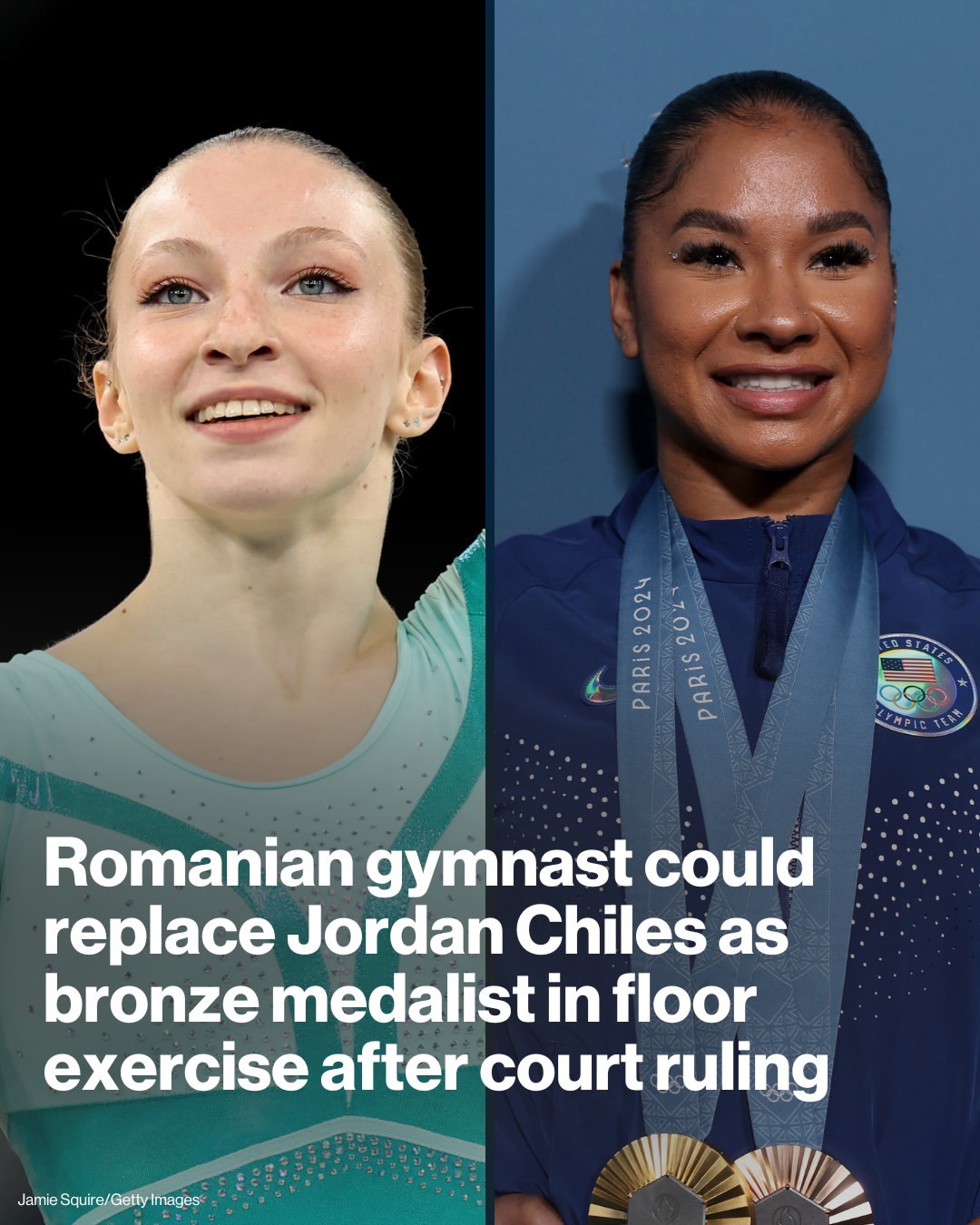CELEBRITY
Breaking news: The International Gymnastics Federation restored Romanian gymnast Ana Barbosu to third in the Paris Olympics women’s floor exercise final Saturday, potentially forcing American gymnast Jordan Chiles to return the bronze she was awarded in the event…See more

PARIS — The International Gymnastics Federation restored Romanian gymnast Ana Barbosu to third in the Paris Olympicswomen’s floor exercise final Saturday, potentially forcing American gymnast Jordan Chiles to return the bronze she won in the event.
 It’s unclear whether Chiles will be compelled to send back the medal. The federation, known as FIG, said while it has restored the initial order of finish — with Barbosu third, Romanian teammate Sabrina Maneca-Voinea fourth and Chiles fifth — the allocation of medals was up to the International Olympic Committee.
It’s unclear whether Chiles will be compelled to send back the medal. The federation, known as FIG, said while it has restored the initial order of finish — with Barbosu third, Romanian teammate Sabrina Maneca-Voinea fourth and Chiles fifth — the allocation of medals was up to the International Olympic Committee.
FIG made the decision not long after the Court of Arbitration for Sport voided an appeal from Team USA coach Cecile Landi during the competition that had vaulted Chiles onto the podium.
CAS ruled Saturday that the on-floor appeal Monday by Cecile Landi to have 0.1 added to Chiles’ score came outside the 1-minute window allowed by the FIG. The ad hoc committee wrote that Landi’s appeal came 1 minute, 4 seconds after the score was posted.
CAS wrote that the initial finishing order should be restored, with Barbosu third, Maneca-Voinea fourth and Chiles fifth.
The organization added the FIG should determine the final ranking “in accordance with the above decision,” but left it to FIG to decide who would get the medal behind gold winner Rebeca Andrade of Brazil and silver medalist Simone Biles of the U.S.
FIG spokesperson Meike Behrensen said in an email to The Associated Press that “Reallocation of medals is the responsibility of the IOC.”
At the Olympics, the governing body of each sport manages the competition and decides the results. The IOC typically accepts that result — once appeals to CAS are completed — and formally awards the medals. It’s unclear if the IOC or FIG would ask Chiles to return her medal. The gymnast is already back in the United States.
The IOC did not immediately respond to a request for comment.
The Romanian Gymnastics Federation had asked for three bronze medals to be awarded. Romanian prime minister Marcel Ciolacu reacted to the ruling by saying “justice has been served” and that “in the end, the truth prevailed.”
The ruling adds another layer to what has been a difficult few days for all three athletes. Romanian gymnastics legend and 1976 Olympic champion Nadia Comaneci feared for Barbosu’s mental health because of the wrenching sequence in which she went from bronze medalist to fourth-place finisher.
I can’t believe we play with athletes mental health and emotions like this… let’s protect them,” Comaneci posted on X earlier in the week.
Comaneci, at the same time, criticized the judges for the way they scored Maneca-Voinea’s routine — the gymnast was docked 0.1 points for stepping out of bounds, but viral replays showed she narrowly stayed inbounds. Comaneci urged the Romanian Olympic Committee to protest, which it did, but CAS denied that appeal.
Chiles hinted at the decision in an Instagram story on Saturday, indicating she is heartbroken and is “taking this time and removing myself from social media for my mental health, thank you.”
Barbosu and Maneca-Voinea were left outside the medals in the floor final after finishing with matching scores of 13.700. Barbosu thought she had won bronze over Maneca-Voinea via a tiebreaker — a higher execution score — and began celebrating with a Romanian flag.
Chiles was the last athlete to compete and initially given a score of 13.666 that placed her fifth, right behind Maneca-Voinea. Landi called for an inquiry on Chiles’ score












